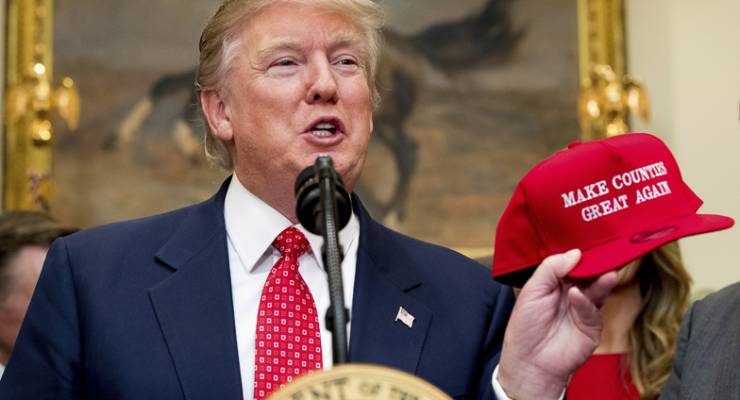
When you’re in the middle of a bomb cyclone, making small talk about the weather becomes entirely acceptable. In Washington D.C. last week, that surely came as a relief to the literally hundreds of nervous graduate students and ECRs (“early career researchers”, an industry pseudonym for un- or under-employed recent PhD graduates) who were wandering through the cavernous lobby of the Marriott Hotel.
Along with about 1500 others, we were attending the 132nd annual meeting of the American Historical Association. As always, at the AHA, it’s the younger people and ECRs who are really on edge. They’re waiting for their job interviews, which are conducted en masse at the conference “job center” and sometimes even, horrifyingly, perched on a bed in a hotel room; working up the courage to pitch their research project to one of the many academic publishing houses in the Exhibit Hall; or waiting for a coffee meeting with that all-influential professor.
To be fair, while the younger academics had our own reasons to be anxious, the whole contingent of historians was a little jittery, and not just because it was 20 degrees below zero outside. The combined slow-burn of the neoliberal take-over of universities, and the furious fire of the monster in the Oval Office just a few miles away (or was he off playing golf?) meant that the historical profession’s existential crisis was on full display at the AHA.
That crisis takes many forms. Overwhelmingly, it centres on the question of where the Trump presidency came from, and what it means. Except for a few outliers, most historians agree that Trump is not a one-off anomaly, but the result of decades of economic decline and the historical legacy of deep, systemic racism. It’s this discussion of the role and significance of history in the rise of Trump — who appealed directly to a particular idea of history in his insistence that he would Make America Great Again – that has prompted another, related, existential question for historians.
In the aftermath of the 2016 election, there was an explosion of interest in historical analogies, and precedents for, the 45th President. Is he the new Nixon? The new Jackson? Is he a populist? A capital-F Fascist? Mussolini? Hitler? Are we reliving the 1930s?
It was partly the potential danger of these bad analogies that led Moshik Temkin to write his controversial NYT op-ed “Historians Shouldn’t Be Pundits” (for which, he was at pains to point out, he didn’t write the headline). Temkin argued that historians should not engage with the use of such “misleading” analogies, which can be both dangerous, and, as with the Watergate/Russiagate comparison, lull us into a false sense of security that a happy ending is at hand.
The panel convened at the AHA to respond to Temkin’s op-ed offered some thoughtful and convincing discussion, shedding light on the way that historians, and pundits of all stripes, are grappling with Trump. Bad analogies, the panel agreed, are dangerous. To my mind, no one has described this danger more starkly than Cambridge’s David Runciman: democracy is failing around us, in very new ways, and we cannot see it because we’re too busy looking for Hitler.
Historians do not live in a world, as the formidable Ibram X. Kendi pointed out in his response to Temkin, where we have the luxury of allowing our scholarship to speak for itself. In a world where the likes of Steve Bannon styles himself as a historical authority and is using dangerous and egregious alternative analogies to spread hateful ideas about the trajectory of civilisation, we have a duty to counter him. If that means we have to use analogies too, because that is the way people seek to understand the relevance and role of history, then so be it. It is our duty to find and use good ones. To do that, the panellists agreed, historians must do the best and most watertight scholarship possible, and we must find effective ways to communicate it to the broader public.
For historians, publicly explaining those good analogies also offers significant opportunities. As Nicole Hemmer, a founding editor of the Washington Post’s Made by History series, pointed out, this new thirst for historical context and explanation means that historians have a unique opportunity to be heard and have a real impact on political discourse. In the U.S., that was most recently evident in the explosive debate over the removal of Confederate monuments, on which historians had a not insignificant influence.
The traction historians are gaining in the media and as public commentators was widely celebrated across the entire conference. It’s just a shame, as a few people quietly pointed out, that’s not translating into, you know, actual jobs.
On the way home, the doors of our train froze shut.







Trump is not a one-off anomaly – he is the very epitome of America, populism writ large.
For all that he fell 3M short of a majority of votes cast and la Klingon garnered “more votes than any white man in presidential history” the simple fact is that he represents the Nation’s worst aspects, crudity, ignorant arrogance, violent in thought & deed, avarice & untrustworthiness etc.
Most of all though, envious of their betters and determined in their inadequacy to destroy what they cannot understand.